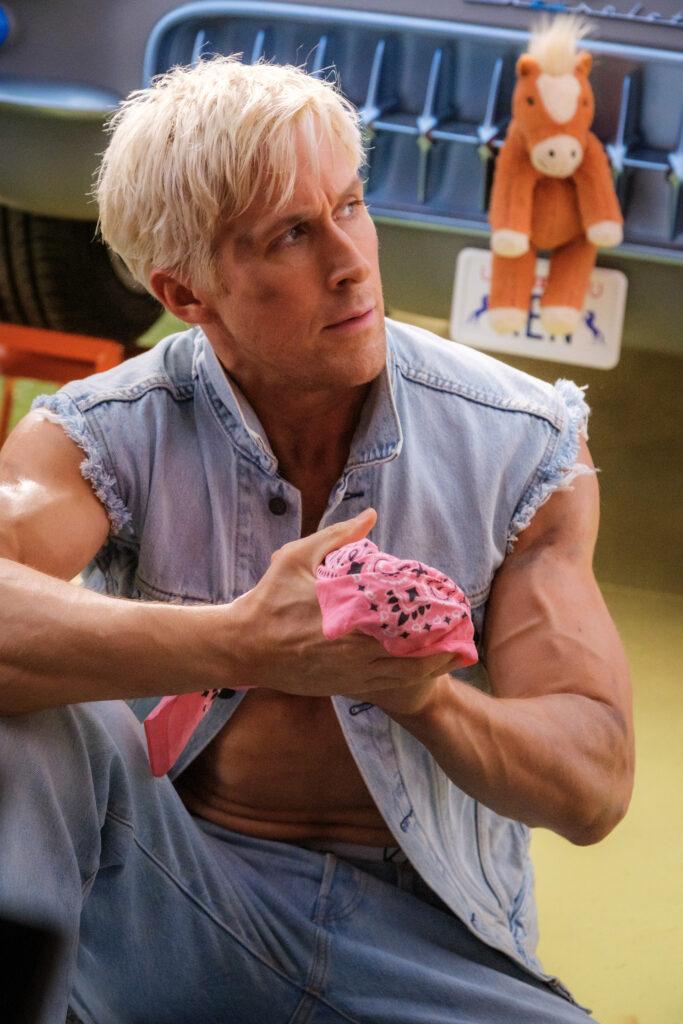★★★★☆
Pink is the new black.
Buoyed by outstanding wardrobe and set design, actors who seem to be having the time of their lives and a deft media team able to capitalize on the viral success of “Barbenheimer,” Greta Gerwig’s “Barbie” is everything: a box office sensation, a cultural phenomenon and a movie about a sentient doll that isn’t viscerally horrifying. Yet, for all of its strengths, “Barbie” is far from perfect.
From the outset, the world of “Barbie” is visually stunning and charmingly oblivious to the laws of physics. Audiences are led through a day in the life of Stereotypical Barbie (Margot Robbie), whose reality is perfect — kind of. As the Barbies go through their identical morning routines and an immaculately choreographed dance number, it’s hard not to feel that while life in plastic may be fantastic, it’s also monotonous — think the “Everything is Awesome” scene from “The Lego Movie,” but drenched in enough pink to cause a global shortage.
Before paradise can become tedious, though, Robbie’s Barbie faces a more immediate problem. Beset by flat feet, cellulite and thoughts of death, she’s forced to seek the counsel of Weird Barbie (Kate McKinnon), who sends her on a quest to find the real-world girl whose troubles are seeping into her reality. Ken (Ryan Gosling), ostensibly her boyfriend but practically a groupie, tags along.
However, Barbie’s plan quickly goes awry when her target, a cynical middle schooler named Sasha (Ariana Greenblatt), slams Barbie for her naivete and for “setting the feminist movement back 50 years.” Luckily for Barbie, her true target is actually Sasha’s mom Gloria (America Ferrera), a Mattel employee who has taken to doodling gloomy parodies of the doll to cope with feeling unfulfilled and disconnected from her daughter.
Barbie invites Gloria and Sasha back to Barbie Land, only to discover upon arrival that Ken’s time in the real world has convinced him to turn it into a patriarchal “Ken-dom” instead, a place where men and horses reign supreme and the Dreamhouse has become the “Mojo Dojo Casa House” (literally “Magic House House House”). With the changes soon set to become permanent, the humans, the discontinued dolls and the oft-forgotten Allan (Michael Cera) must un-brainwash the Barbies and return things to the way they were.
Those who have seen the movie may note that this summary ignores the subplot with Mattel’s executive board, and those who haven’t can rest assured that they’re not missing much. None of the characters have names, which is just as well, because you will never recognize the CEO (Will Ferrell) as anyone but Will Ferrell. As a stand-in for corporate America, the character falls flat, too blundering to be taken seriously. What criticism of big business the film does have to offer is lost in the surreal sequence at Mattel headquarters, where any intended lesson gets run over by a slapstick chase scene and Ruth Handler’s force ghost.
There’s already been plenty of discourse regarding Gerwig’s supposed agenda in making this movie, a good chunk of it unproductive. If “Barbie” has an underlying message, it’s caked in enough layers of satire and self-awareness to rationalize anyone’s moral outrage.
This isn’t to say that the movie has no emotional core. Ken and Barbie speedrun the gamut of messy human emotions and come out all the better for it, each resolving to forge their own identity. Gloria’s hypercompetent, optimistic mask slips, allowing her and Sasha to find common ground. Allan remains Allan because he’s already perfect. The board of Mattel learns something, probably.
Much has been made of Gloria’s monologue about the inherently contradictory demands of womanhood, and for good reason. What it lacks in subtlety it makes up for in clarity, neatly dissecting double standards in a sequence that’s surely striking for people who haven’t thought about them in depth. Schrödinger’s Woman must be simultaneously independent yet dutiful, mature but not matronly, attractive but not a temptation.
In telling a story that’s expected to capitalize on nostalgia but present a fresh take, empower women to greatness without trivializing systemic barriers and skewer corporate greed while getting that same corporation’s blessing, I would argue that “Barbie” faces a similarly impossible task.
Gloria’s monologue serves as a microcosm for the movie as a whole: yes, the execution is heavy handed, but it’s direct, truthful and neatly done. And since Barbie’s exchange with an old woman at a bus stop made me tear up, I have to admit there are parts where the subtlety works.
So no, maybe “Barbie” is not actually everything. But it is something, and that something is very, very good.
















Jeannie Thomas • Aug 31, 2023 at 8:15 pm
Very well written, and yes- the bus stop scene got me as well!